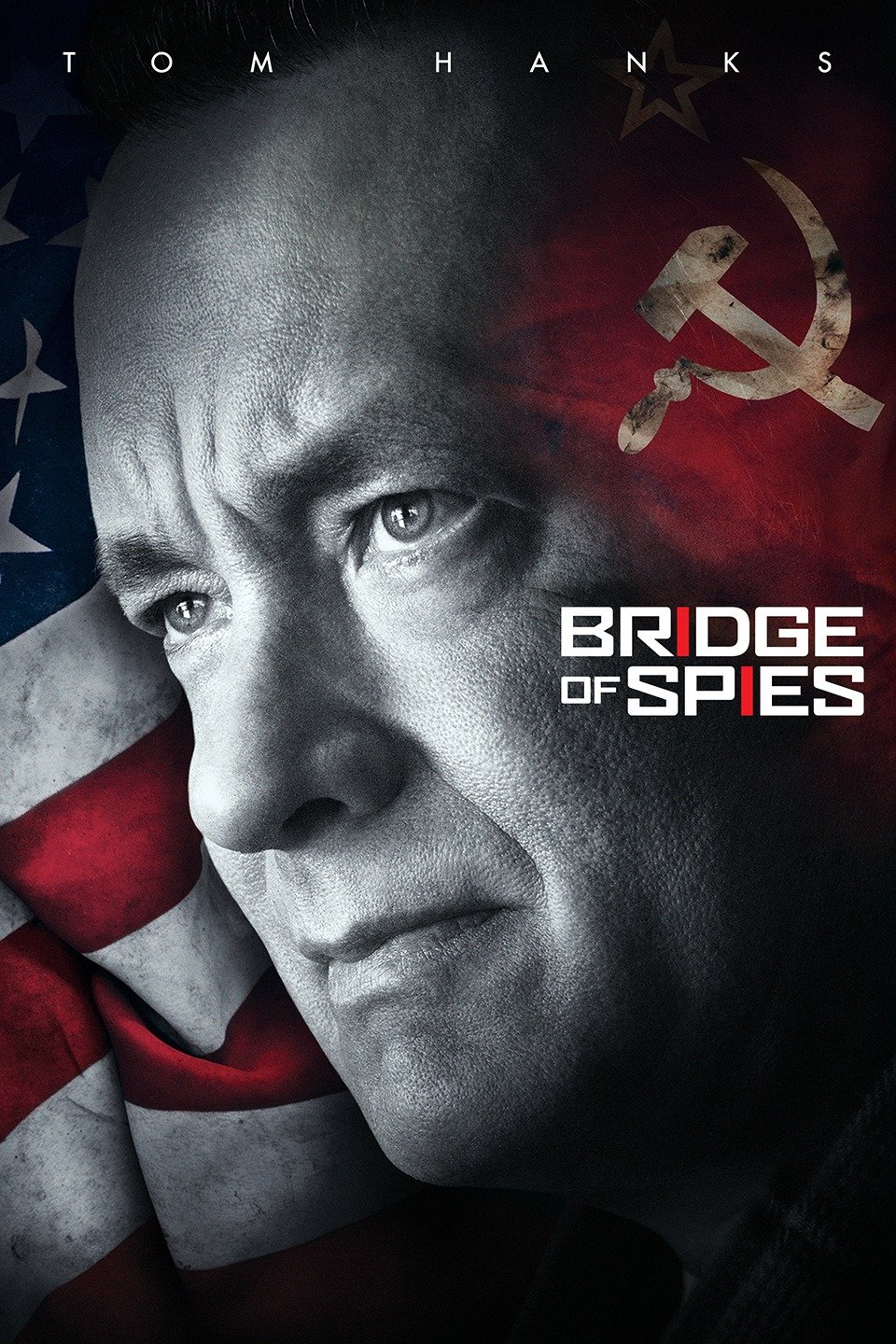Directed by: Steven Spielberg

Bridge of Spies is a fine film, and demonstrates Steven Spielberg, who directed it, at the top of his game. Tom Hanks plays James B. Donovan, a big-city insurance lawyer, who is pressed into service by the US government to defend a captured Russian spy and later to arrange his exchange for Francis Gary Powers, the famous U-2 pilot shot down during the cold war. Hanks plays Donovan as the likeable, tough-but-fair, lawyer he apparently was (the film is based on a true story); Academy Award recognition may be coming his way again because the role was challenging, and Hanks is up to the challenge.
It does not hurt to have the exceptional Mark Rylance, who plays the spy Rudolf Abel, to play off of in many of his scenes. Rylance, fresh off a spot-on performance portraying Thomas Cromwell in King Henry the Eighth’s court in the PBS series Wolf Hall, is one of those actors, who seems to inhabit his roles totally, perhaps because he has done so much stage acting. In any case, he and Hanks overshadow almost everyone else in the film; whenever the action strays to Powers, or to the bungling CIA discussions, the decrease in acting quality is apparent.
Thankfully, that is not often, as Hanks, at least, is in almost every scene in the film. Sebastian Koch, as Wolfgang Vogel, the shadowy East German official who dislikes Russian occupiers as much as he does Americans, should also be mentioned. He is mysterious, frightening and sympathetic all at once.
The story has a small but interesting twist that makes the negotiations Hanks engages in with first the Russians, then the East Germans, the most interesting part of the film. In the opening scene of the film, we see Hanks negotiating an insurance dispute; that should tip us off that negotiations will be at the heart of the film. The script, initially penned by Matt Charman, but polished by the Oscar-winning Coen brothers, Joel and Ethan, is a wonderful piece of work. Anyone who can make negotiations without a gun in one’s face interesting has accomplished something.
The movie’s production values shine as well. I was able to go to East Berlin in the 1980s before the wall came down, and they have caught the city’s frightening coldness well. Spielberg with his famous penchant for doubled images incorporates one scene with Donaldson on a train going back to West Berlin, when a few desperate East Germans are shot trying to get over the wall. Donaldson witnesses this horrific incident, and has brought home to him the great benefit anyone has who lives in the United States, when, later back home, he observes (again from a train) a group of kids jumping fences in back yards in New York City. The patriotism mixed with his critique of heartless government, when it has no thought for the individual, is perhaps the main theme of the film, and Spielberg holds this balance as well as he has done since his magisterial Saving Private Ryan. This film is not Ryan’s equal, but Bridge performs its lesser task well, and that is enough.
Drew Trotter
November 12, 2015